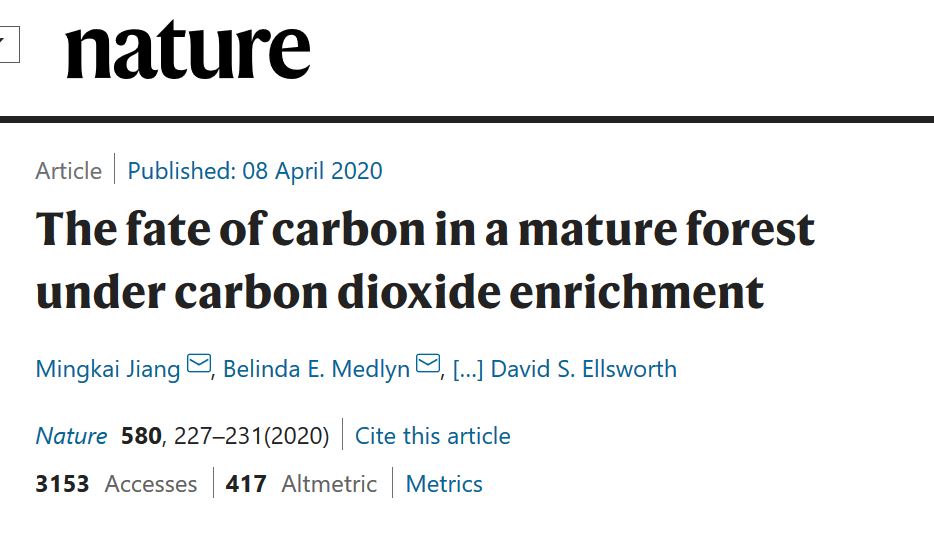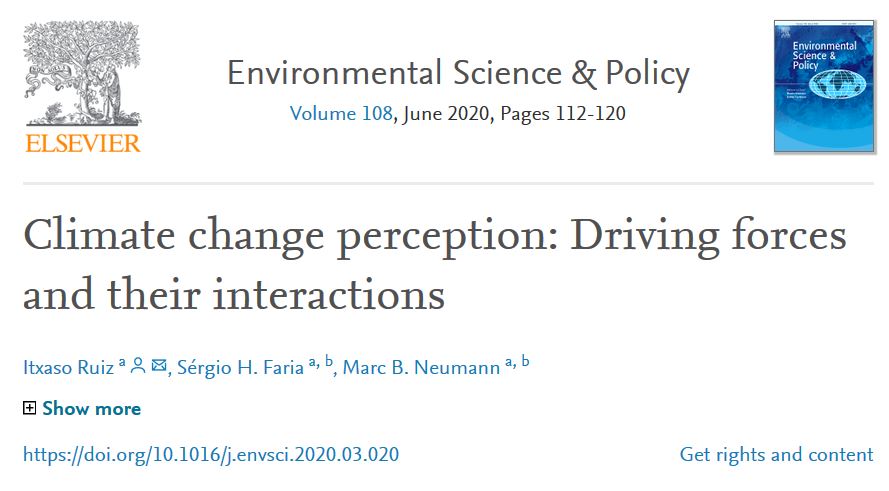April 14, 2020
Published by Teresa Gimeno BC3Research at April 14, 2020
Categories
Atmospheric carbon dioxide enrichment (eCO2) can enhance plant carbon uptake and growth, thereby providing an important negative feedback to climate change by slowing the rate of increase of the atmospheric CO2 concentration. Although evidence gathered from young aggrading forests has generally indicated a strong CO2 fertilization effect on biomass growth, it is unclear whether mature forests respond to eCO2 in a similar way.
April 16, 2020
Published by BC3Research David Moreno Asun Rodríguez at April 16, 2020
Multiple large-scale restoration strategies are emerging globally to counteract ecosystem degradation and biodiversity loss. However, restoration often remains insufficient to offset that loss. To address this challenge, we propose to focus restoration science on the long-term (centuries to millennia) re-assembly of degraded ecosystem complexity integrating interaction network and evolutionary potential approaches. This approach provides insights into eco-evolutionary feedbacks determining the structure, functioning and stability of recovering ecosystems. Eco-evolutionary feedbacks may help to understand changes in the adaptive potential after disturbance of metacommunity hub species with core structural and functional roles for their use in restoration.
April 24, 2020
Published by BC3Research Itxaso Ruiz at April 24, 2020
Public perception of climate change can either facilitate or hinder the implementation of climate policies. This perception is dependent on a number of influencing factors, called drivers, in ways that are still not clearly understood. Our study quantifies the relative strength of drivers of climate change perception, taking into account differences in the social, political, geographical, economic and educational identities of any considered community.
April 28, 2020
Published by Maria Jose Sanz Mikel González-Eguino BC3Research at April 28, 2020
Categories
FUNCAS, con la colaboración BC3 - Basque Centre for Climate Change, ha publicado un nuevo libro sobre la transición baja en carbono en España. El libro "Transición hacia una economía baja en carbono" a sido editado por la directora científica del BC3 María José Sanz y el investigador senior del BC3 MIkel González-Eguino.FUNCAS es una organización privada sin fines de lucro creada y financiada por CECA, en el marco de sus inversiones en capital social, para llevar a cabo actividades que beneficien a la sociedad española, promover una cultura del ahorro y contribuir a sensibilizar sobre los servicios que ofrecen las cajas de ahorro a la comunidad.Transición hacia una economía baja en Carbono en España




